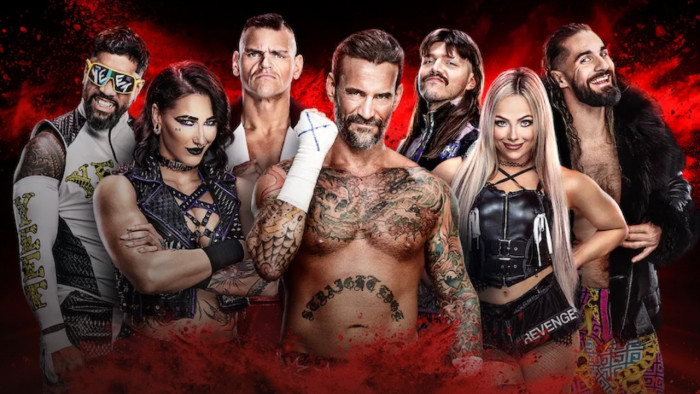Jeremy Corbyn is the Arsene Wenger of politics, and here’s why
As the Labour Leader battles the ‘traingate’ controversy, here's why one football manager shares his pain


As the Labour Leader battles the ‘train gate’ controversy and cross-party divide, Chas Newkey-Burden reveals why he can take solace that a football manager shares his pain
He’s one of the most polarising figures of 2016. Constantly taking pelters from the media, he’s also facing mutiny from within his own ranks. His supporters see him as the last bastion of decency in a crooked arena, but his dissenters insist he is an embarrassing, bolshie relic, incapable of winning and unworthy of their red banners.
I speak of Jeremy Corbyn - but I could just as easily be describing Arsene Wenger. These two men of Islington, both born in 1949, are peas in a pod. They currently find themselves in parallel predicaments, but the resemblance has been there for some time.
Their respective arrivals at the highest level were met with puzzlement. When Wenger was announced as the new Gunners boss in 1996, heads were scratched all round. One tabloid asked: “Arsene Who?” and few people thought he even looked like a football manager, his bookish demeanour at odds with the gnarled appearance of those gaffers of yesteryear.
Last summer, when Corbyn - himself a style maverick thanks to his dislike of a tie - announced he was joining the Labour leadership race, the media treated his candidacy as a side-splitting lark. Ladbrokes gave him odds of 200-1 to win, and few people thought he looked like a party leader.

When they took charge of their respective red armies, it became clear that both had a very long game in mind. Wenger revolutionised Arsenal from top to bottom, building a new training ground and stadium, and endeavouring to set up grassroots initiatives that his successor, and successor’s successors, would bask in the fruits of.
Not for him the self-seeking short-termism of gaffers like Jose Mourinho, Harry Redknapp and Alan Pardew. But in recent years, the Frenchman’s horizon-gazing has become so pronounced that it has infuriated Gunners fans, who tire of his thrifty hesitancy in the transfer market.
“The guy who comes in after me will be in a very strong position to deliver something exceptional,” protests the besieged boss. This doesn’t wash with many Gooners, who wonder why he won’t throw everything at a bid for immediate success, rather than forever pointing to a future nirvana, which never seems to arrive.
Corbyn doesn’t seem a man in a hurry either. The Labour leader refuses to make cheap gestures or headline-grabbing bids for a short-term bump in the polls. Neither will he pretend to believe in things he doesn’t believe in, though he will brave the wildest of storms to stand by the things he does.
Instead of chasing pats on the head from the media or raised glasses in the Westminster bubble, he prefers to focus on a long-term strategy at grassroots level, which puts at least as much importance on future generations as on the next general election.

BOLSHIE BOSSES
The quality that props up the Corbyn/Wenger approach is one that both men have in spades: stubbornness. Colleagues and friends of Wenger describe him as a strong-headed character. Google agrees: type “Arsene Wenger is stubborn” into the search engine and you get over 400,000 results.
An equivalent search for Corbyn draws just 83,000 hits, but give him time. Commentators from across the political spectrum already routinely describe him as stubborn and he will have needed to be at least a tad pig-headed to have kept going in recent months as rotten tomatoes were hurled at him at pump-action shotgun rate.
To say Wenger and Corbyn polarise opinion fails to do justice to the ferocious civil war they have sparked within their own ranks. The Arsenal fanbase’s ‘Arsene Knows Best’ and ‘Wenger Out’ factions argue bitterly on social media, podcasts and YouTube videos. Ridiculously, some Gooners have even physically brawled over the issue at matches, such is the passion with which they oppose or support their embittered French leader.
The cult-like nature of those rival sects are mirrored in Labour ranks, where those in favour of and opposed to Corbyn have long since abandoned any sense of doubt, or nuance. Instead, it’s now 24/7 warfare between those for whom the Labour leader can do no right, and those for whom he can do no wrong.
Both chiefs have drawn ironic ‘support’ from their opponents. Back in April, as the Gunners trailed their local rivals in the Premier League table, Spurs fans sang: “We want you to stay, Arsene Wenger, we want you to stay.” Similarly, as Labour sink in the polls, Tories chortle as they call for Corbyn to remain in charge of Labour as long as possible.
Which could actually be a while yet. He has been party leader for just 11 months, but he’s been Islington’s MP since the early 1980s. Wenger, meanwhile, has been in charge at Arsenal for just short of 20 years. They might be skinny, sixty-something and grey, but both have an air of longevity and improbable stamina about them, like those old joggers who somehow stride effortlessly around your local park.
The incredulity of the anti-Wenger and anti-Corbyn cults as each man stays at the helm, refusing to surrender to the weight of the protests, is a wonder to behold. The two chiefs could compare notes on how it feels to face such internal opposition, and, neatly enough, Corbyn is a pro-Wenger Arsenal fan. “I think Arsene should go when he wants to go,” he said in May. “I'm a Wenger man.”
Whether Wenger backs Corbyn’s leadership is unknown, but he has shown some left-leaning principles in his work. He describes the cautious wage structure he runs at Arsenal as “a socialist model”, he was one of the first managers to speak out on gay rights, and he once told a greedy player: “No matter how much money you earn, you can only eat three meals a day and sleep in one bed."
When the Frenchman eats in restaurants he often adopts a somewhat pinko approach: he takes just a few mouthfuls of his meal before passing the rest to his friends to enjoy. Indeed, from the moment he arrived in England he encouraged his players to cut back on alcohol and increase their intake of vegetables, a plan of which the tee-total vegetarian Corbyn must surely approve.

THE ROAD TO REDEMPTION
And if Jeremy Corbyn thinks for a moment that he launched the whole become-a-martyr-by-not-taking-a-seat manoeuvre then Wenger has news for him: back in 2009, when an Arsenal goal at Old Trafford was ruled out for offside, the Frenchman kicked a water bottle in anger, gaining the attention of the match officials. After being sent to the stands by Mike Dean, Wenger refused to take a seat in his new surroundings, cutting a comical figure high in the stands, flapping his arms wildly as United fans assaulted his eardrums and Gooners held their heads in shame - if ever there were a leader going out of his way to gain sympathy for it to then backfire spectacularly, it was that moment.
Politics and football have had a shaky kinship. From David Mellor reportedly wearing a Chelsea kit as he bedded a woman, to Thatcher’s ID cards, and David Cameron getting confused about whether he supports West Ham or Aston Villa, it’s often been ghastly.
But if Corbyn wants useful advice on how to keep his head when all about him are losing theirs, he could do worse than give Wenger a call. It’s now 12 years since Arsenal won the league title, and few hold out any hope they will win it this season.
Yet there is Wenger, still sitting in the dugout. He’s seen more than 160 managerial changes in the Premier League since he took over at Arsenal and he’s faced off countless crises. And still, he does it his way.
The world around him can change all it likes, Wenger remains the same, just like Corbyn.
Follow Chas on Twitter @allthatchas
Latest
Related Reviews and Shortlists









